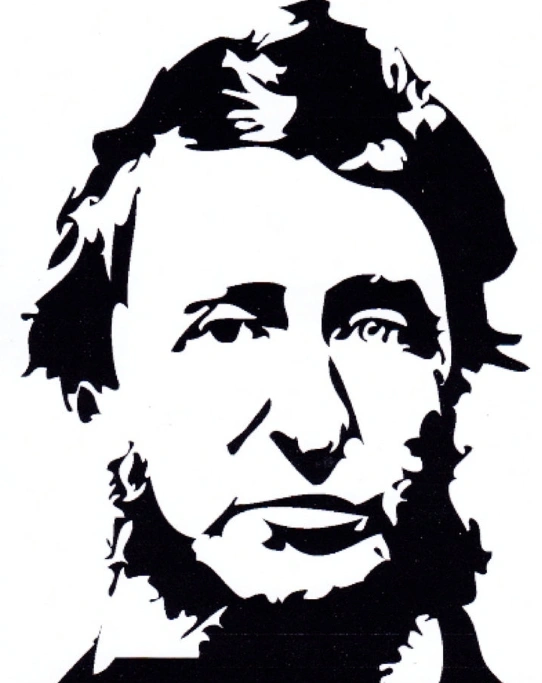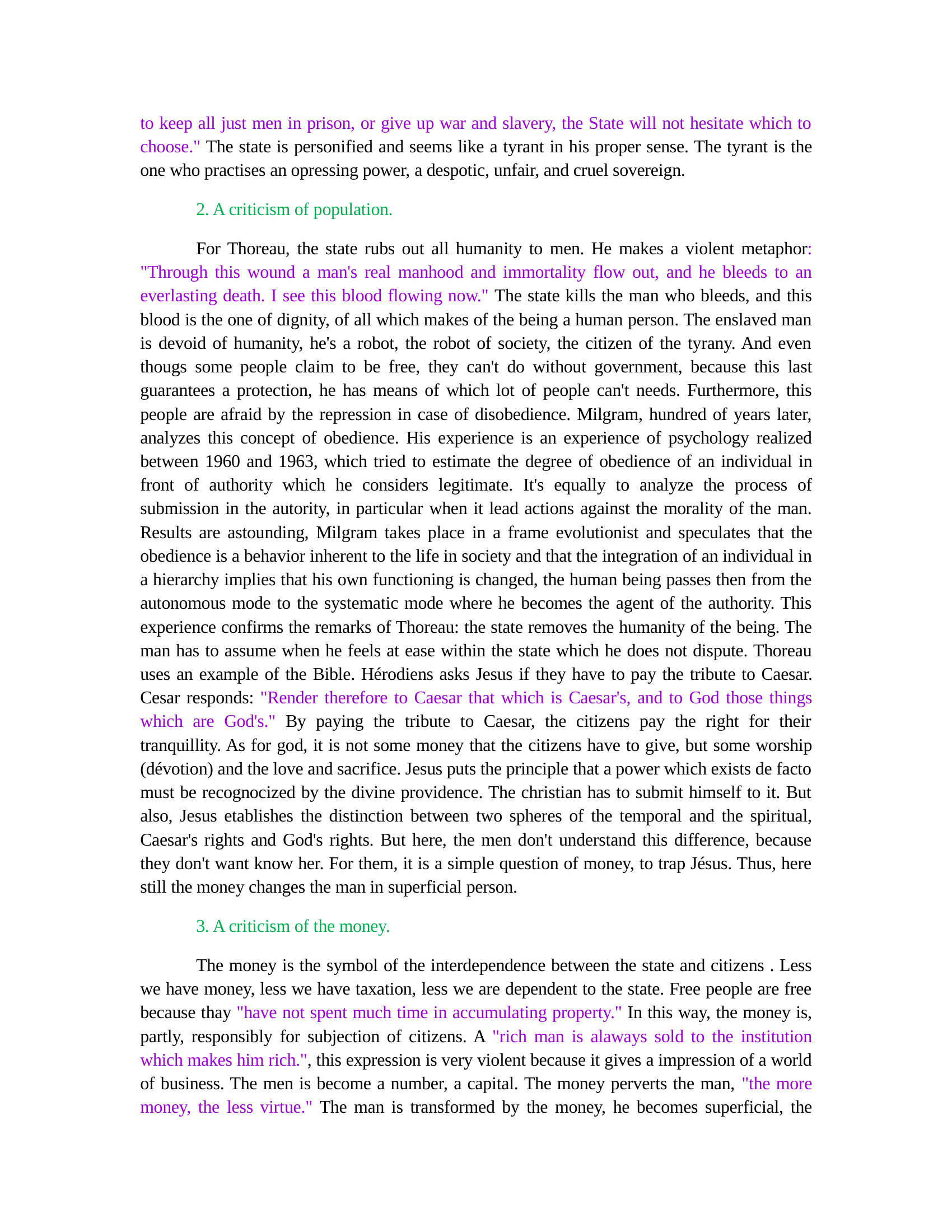Thoreau anglais
Publié le 28/01/2013

Extrait du document


«
to keep all just men in prison, or give up war and slavery, the State will not hesitate which to
choose." The state is personified and seems like a tyrant in his proper sense.
The tyrant is the
one who practises an opressing power, a despotic, unfair, and cruel sovereign.
2.
A criticism of population.
For Thoreau, the state rubs out all humanity to men.
He makes a violent metaphor :
"Through this wound a man's real manhood and immortality flow out, and he bleeds to an
everlasting death.
I see this blood flowing now." The state kills the man who bleeds, and this
blood is the one of dignity, of all which makes of the being a human person.
The enslaved man
is devoid of humanity, he's a robot, the robot of society, the citizen of the tyrany.
And even
thougs some people claim to be free, they can't do without government, because this last
guarantees a protection, he has means of which lot of people can't needs.
Furthermore, this
people are afraid by the repression in case of disobedience.
Milgram, hundred of years later,
analyzes this concept of obedience.
His experience is an experience of psychology realized
between 1960 and 1963, which tried to estimate the degree of obedience of an individual in
front of authority which he considers legitimate.
It's equally to analyze the process of
submission in the autority, in particular when it lead actions against the morality of the man.
Results are astounding, Milgram takes place in a frame evolutionist and speculates that the
obedience is a behavior inherent to the life in society and that the integration of an individual in
a hierarchy implies that his own functioning is changed, the human being passes then from the
autonomous mode to the systematic mode where he becomes the agent of the authority.
This
experience confirms the remarks of Thoreau: the state removes the humanity of the being.
The
man has to assume when he feels at ease within the state which he does not dispute.
Thoreau
uses an example of the Bible.
Hérodiens asks Jesus if they have to pay the tribute to Caesar.
Cesar responds: "Render therefore to Caesar that which is Caesar's, and to God those things
which are God's." By paying the tribute to Caesar, the citizens pay the right for their
tranquillity.
As for god, it is not some money that the citizens have to give, but some worship
(dévotion) and the love and sacrifice.
Jesus puts the principle that a power which exists de facto
must be recognocized by the divine providence.
The christian has to submit himself to it.
But
also, Jesus etablishes the distinction between two spheres of the temporal and the spiritual,
Caesar's rights and God's rights.
But here, the men don't understand this difference, because
they don't want know her.
For them, it is a simple question of money, to trap Jésus.
Thus, here
still the money changes the man in superficial person.
3.
A criticism of the money.
The money is the symbol of the interdependence between the state and citizens .
Less
we have money, less we have taxation, less we are dependent to the state.
Free people are free
because thay "have not spent much time in accumulating property." In this way, the money is,
partly, responsibly for subjection of citizens.
A "rich man is alaways sold to the institution
which makes him rich." , this expression is very violent because it gives a impression of a world
of business.
The men is become a number, a capital.
The money perverts the man, "the more
money, the less virtue." The man is transformed by the money, he becomes superficial, the.
»
↓↓↓ APERÇU DU DOCUMENT ↓↓↓
Liens utiles
- exposé anglais introduction to the Consumer Society
- « Simplify, simplify » («Simplifie, simplifie ») Thoreau
- Comparaison œuvres anglais
- leçon present perfect anglais
- Exposé Marseille en anglais

































